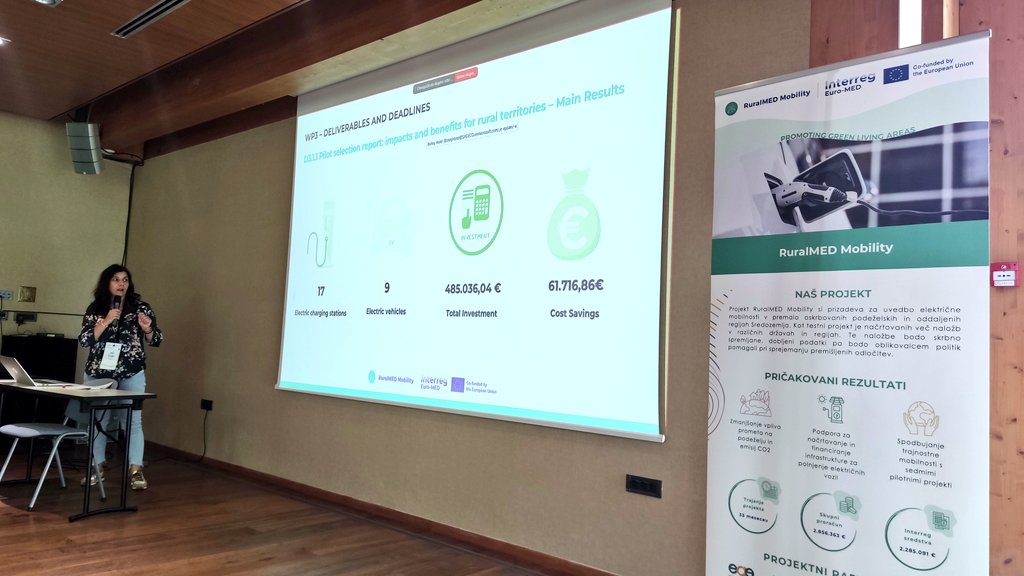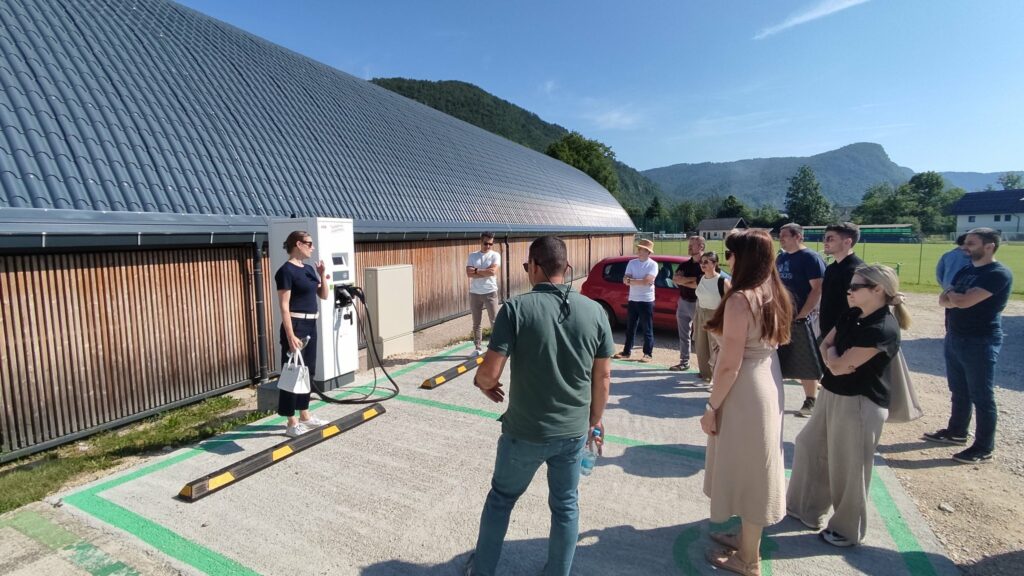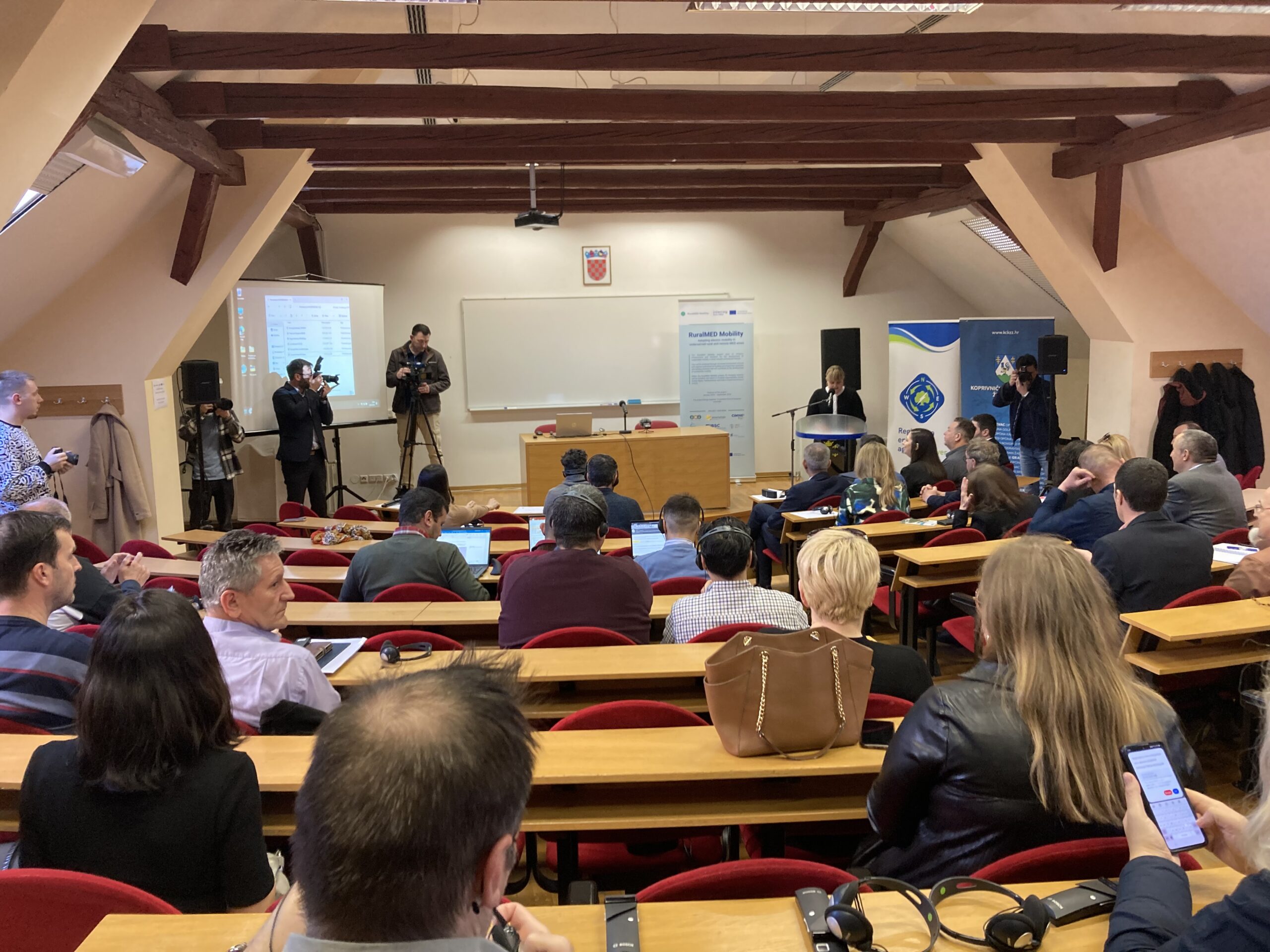
On June 17–18, 2025, the 4th Transnational Forum of the RuralMED Mobility project took place in Bohinjska Bistrica, Slovenia, followed by a study visit to the pilot in Municipality Bohinj. The event, hosted by BSC, Business Support Centre, Ltd, Kranj – Regional Development Agency of Gorenjska, brought together partners and stakeholders committed to promoting electric mobility in underserved rural and remote Mediterranean areas.
Project partners share progress on pilot activities
A total of 26 attendances from Portugal, Spain, Italy, Slovenia, Croatia, Bosnia and Herzegovina, Bulgaria, and Greece participated in the event. A key session was dedicated to reviewing the implementation status of pilot activities, which includes charging infrastructures for electric vehicles and car sharing systems.

Some pilots are already operational and delivering services to rural communities, others have recently completed their installations, and a few are preparing for imminent launch. This exchange of updates offered a valuable opportunity to identify common challenges and good practices among territories at different stages of implementation.
The event also included an update on the RuralMED Mobility monitoring platform, currently under development by the International Centre for Numerical Methods in Engineering (CIMNE), Spain. The platform, which will soon be ready, is designed to collect and analyse data from pilot actions and will support evidence-based decision-making and policy design.
Addressing mobility challenges in rural and remote areas
Throughout the forum, partners discussed the persistent lack of EV charging infrastructure and sustainable transport services in rural and remote Mediterranean regions. In many of these areas, demand is seasonal due to tourism or limited, making private investment less attractive than in urban areas. Likewise, providing conventional public transport to sparsely populated areas is often economically unsustainable.
To overcome these barriers, local and regional actors—such as development agencies, municipalities, national parks, and energy and mobility organisations—play a critical role in facilitating low-impact, flexible mobility options.
Electric car-sharing systems and on-demand transport services are being explored as practical, cost-effective solutions that enhance connectivity, enable socially vulnerable groups more independence and mobile safety. For tourists they may provide a convenient first or last kilometre transport to or from the main public transport lines.
Study visit: Local solutions in the Bohinj Municipality
The second day of the forum included a study visit showcasing good practices in Bohinj Municipality, part of Triglav National Park. Through public co-financing, the Triglav National Park Public Institute acquired electric vehicles, five of which were leased to municipalities in the park. In Bohinj, an electric van (e-van) is now used for on-demand transport services.
To support this system and address growing demand, BSC Kranj—with co-financing from the Interreg Euro-MED Programme, and with municipal support—installed a new ABB charging station. Located near Camp Danica, the site offers both 22kW AC and 50kW DC charging options, making it a key infrastructure point in a strategic park-and-ride location.
The main objective of this pilot is to reduce the use of private vehicles in the area, particularly in and around the national park, by promoting more sustainable, flexible and low-impact transport alternatives.



